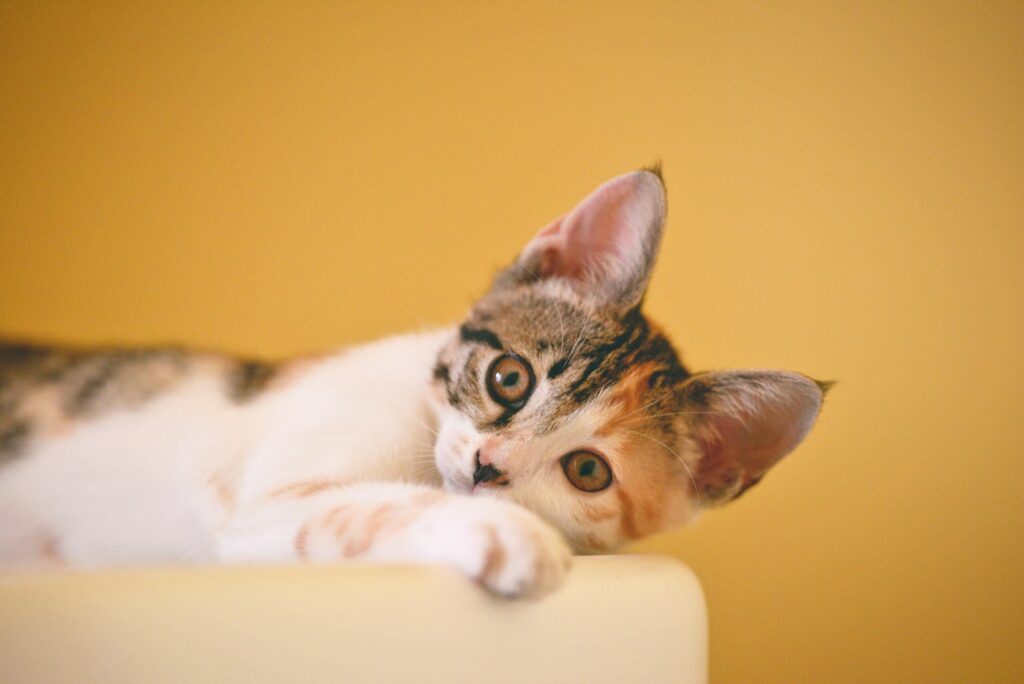Can Cats Eat Catnip? — Yes, They Can
Many cat owners wonder whether it is safe to give their furry friends some catnip as a treat. The good news is that cats can indeed eat catnip without any harm. Catnip, also known as Nepeta cataria, is a member of the mint family and has a fascinating effect on most cats. Let’s delve into the details of why cats can safely enjoy this herb.
Can Kittens Eat Catnip?
Kittens can also enjoy catnip without any issues. However, it’s essential to introduce it gradually and in moderation, as their digestive systems are still developing. As with any new food or treat, it’s best to consult with your veterinarian and observe how your kitten reacts to catnip.
Things to consider when feeding catnip to kittens?
When introducing catnip to kittens, it’s crucial to start with small amounts and closely observe their reactions. Some kittens may show heightened excitement or energy after consuming catnip, while others may not respond as strongly. Keeping an eye on their behavior will help ensure their well-being.
Nutritional Benefits of Catnip for Cats — Why Catnip is Good for Cats?
Stress Relief
Catnip acts as a natural stress reliever for cats. It contains a compound called nepetalactone that triggers a euphoric response in felines, helping to reduce anxiety and promote relaxation. Offering catnip as an occasional treat can be a healthy way to help your cat unwind.
Mental Stimulation
When cats interact with catnip, it stimulates their senses and provides mental stimulation. Whether they sniff it, roll in it, or play with catnip-infused toys, it can help alleviate boredom and keep their minds active and engaged.
Exercise Promotion
Engaging with catnip often leads to increased physical activity in cats. It can reignite their natural hunting instincts, encouraging them to jump, pounce, and play. This can be particularly beneficial for indoor cats that may have limited opportunities for exercise.
Healthy Teeth
The act of chewing catnip can assist in keeping your cat’s teeth clean and healthy. As they gnaw on the leaves or toys, the rough texture helps remove plaque and tartar buildup, promoting overall dental hygiene.
Aid in Digestion
In some cases, catnip can act as a digestive aid for cats. It may help alleviate mild gastrointestinal discomfort and encourage a healthy appetite. However, if your cat has any underlying digestive issues, it’s essential to consult with a veterinarian before offering catnip.
Potential Allergies: Can Cats Be Allergic to Catnip?
Cats are generally not allergic to catnip. However, in rare cases, some cats may exhibit mild allergic reactions, such as sneezing or nasal congestion, when exposed to catnip. If you notice any signs of allergies, it’s best to avoid giving catnip to your cat in the future.
Symptoms of Catnip Allergies in Cats
- Sneezing: Your cat may repeatedly sneeze after coming into contact with catnip.
- Nasal Congestion: Some cats may experience a stuffy or congested nose when exposed to catnip.
- Watery Eyes: Excessive tearing or watery eyes may be a sign of a catnip allergy in some cats.
What to Do If Your Cat Shows Symptoms?
- Monitor Your Cat: Keep an eye on your cat’s symptoms and observe if they worsen or persist.
- Avoid Catnip: If your cat shows signs of an allergy, it’s best to avoid giving them catnip in the future.
- Consult a Veterinarian: If the symptoms are severe or persistent, consult with a veterinarian for further guidance and advice.
Recommended Amount: How Much Catnip Can a Cat Consume?
When it comes to catnip, moderation is key. It’s recommended to offer catnip as an occasional treat rather than a daily indulgence. A pinch of dried catnip leaves or a small catnip-infused toy can bring joy to your cat without overindulging them.
Things to Consider When Feeding Catnip to Cats
Although catnip is safe for most cats, there are a few things to keep in mind:
- Some cats may have a stronger reaction to catnip than others, so adjust the amount based on your cat’s response.
- If your cat has any underlying health conditions or is on medication, consult with your veterinarian before introducing catnip.
- Always purchase catnip from reputable sources to ensure its freshness and quality.
How to Feed Catnip to Cats: A Quick Guide
Introducing catnip to your cat can be a delightful experience. Here’s a quick guide to make the most out of it:
Homemade Catnip Tea
To create a homemade catnip tea, steep a tablespoon of dried catnip leaves in boiling water for a few minutes. Allow the tea to cool and offer it to your cat in a small dish. Watch as they enjoy the aromatic experience!
Catnip-Infused Toys
Another way to give your cat the joys of catnip is through catnip-infused toys. These toys are designed to release the scent of catnip, enticing your cat to play and engage.
Conclusion
In conclusion, cats can safely enjoy catnip as an occasional treat. It provides various benefits, including stress relief, mental stimulation, exercise promotion, healthy teeth, and aid in digestion. While allergies are rare, it’s important to monitor your cat’s reaction and consult a veterinarian if you notice any adverse symptoms. Remember, moderation is key when offering catnip to your feline companion. Enjoy the delightful experiences that catnip can bring to your cat’s life!






